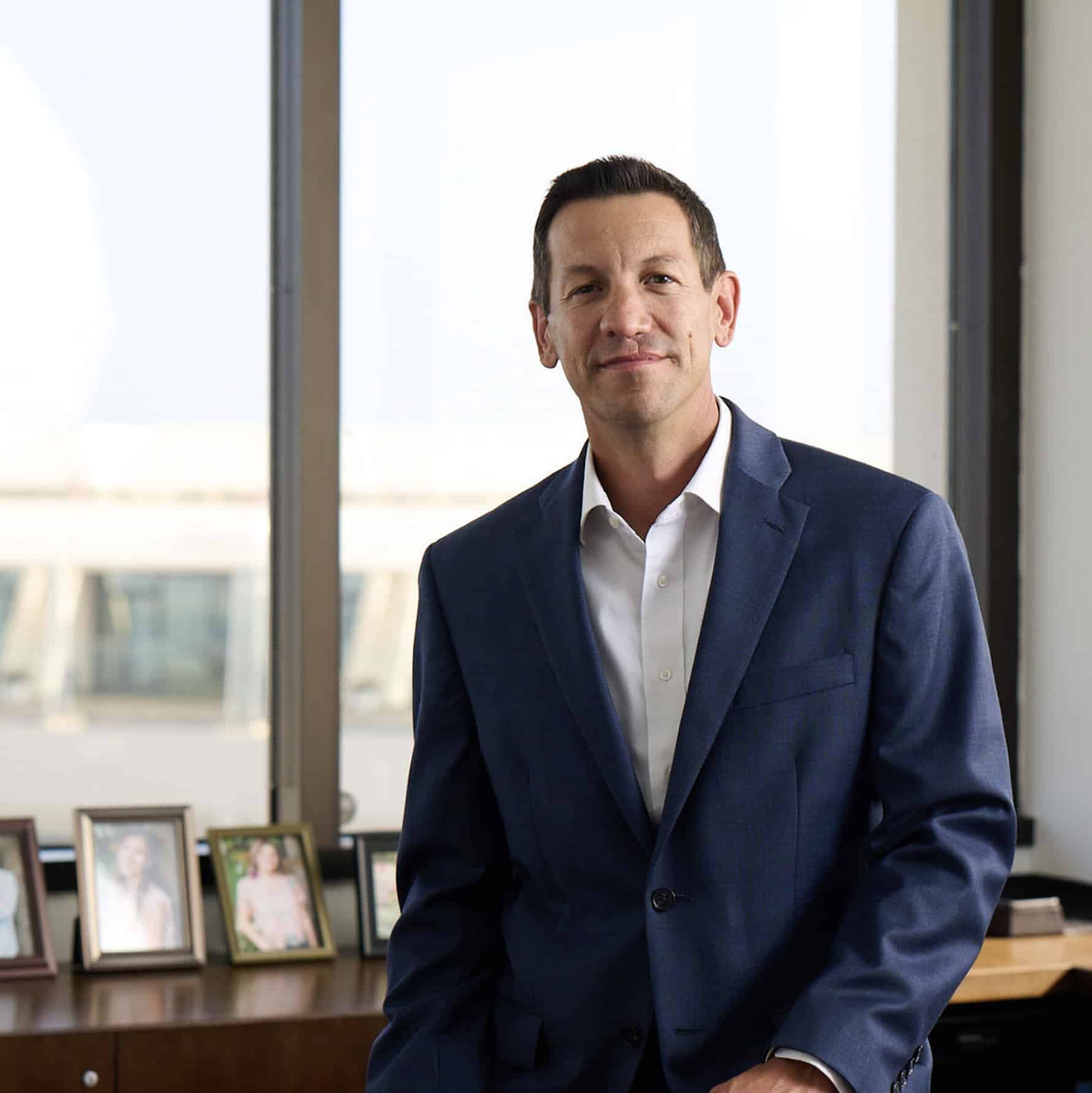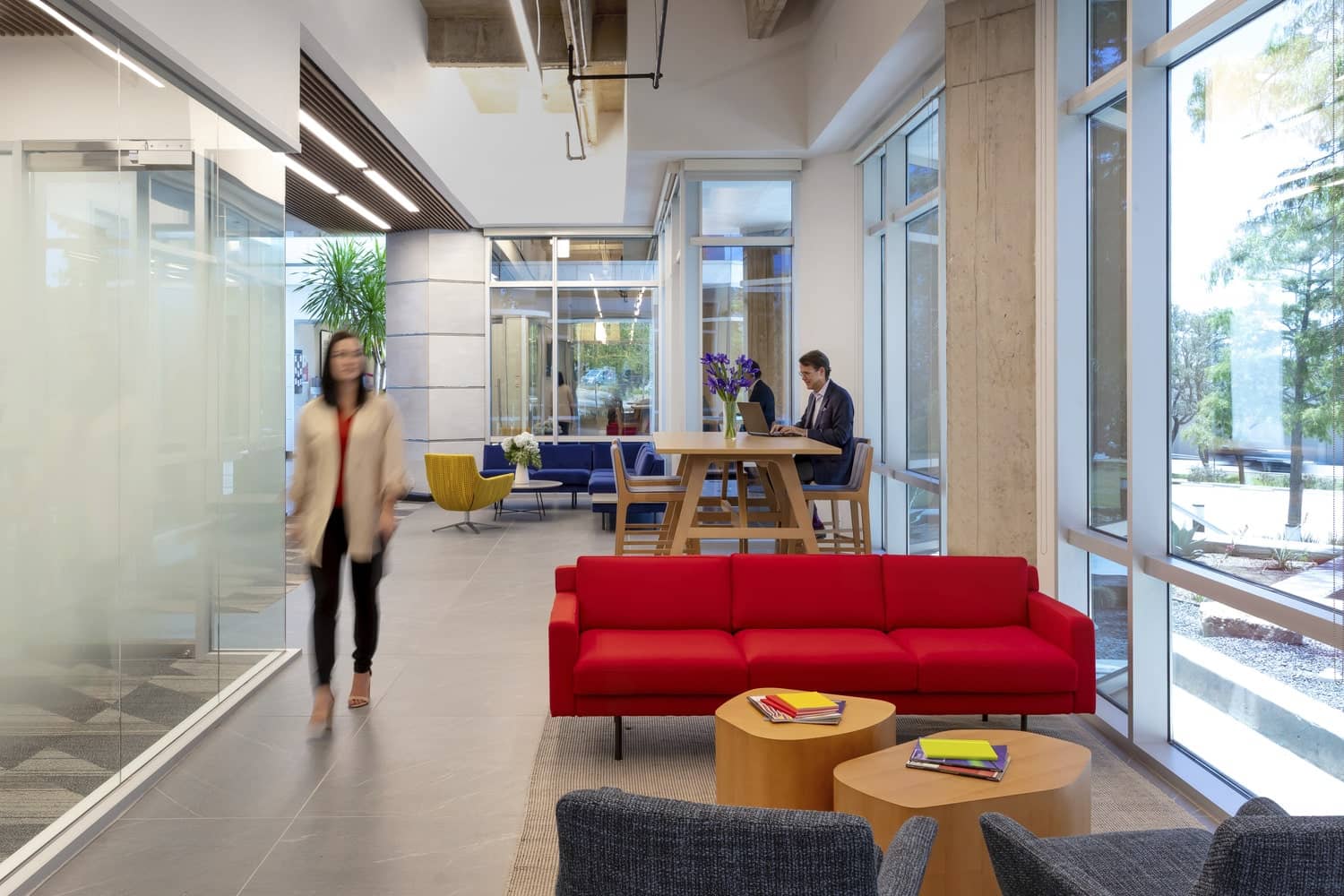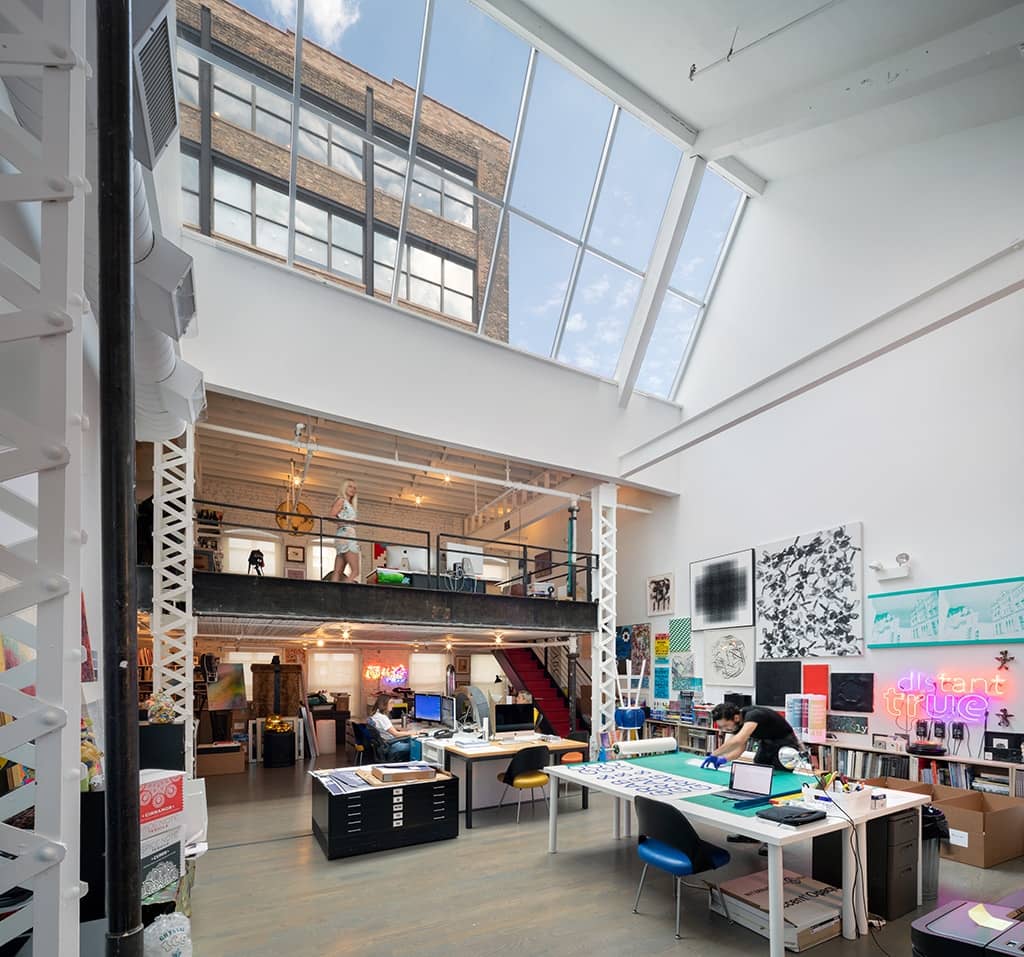Having enjoyed an impressive career that spans more than two decades — with the last 13 years at KBS — Jeff Waldvogel, the firm’s chief financial officer, has a strong background in the financial arena. His seasoned perspective helps real estate investors position themselves for favorable outcomes regardless of the economic climate.
We spoke with Jeff candidly about his career and the future of commercial real estate, including factors that influence the sector’s performance.
Question
Jeff, you’ve been in the financial sector for more than 20 years. What are the biggest changes you’ve seen during that time?
I graduated from college in 2002, which was a challenging time for those entering the field in the aftermath of the Enron scandal. Many of my friends had accepted offers from Arthur Andersen, which folded because of its involvement in the scandal, and they suddenly didn’t have jobs. I was fortunate to have accepted a job at Ernst & Young on the audit side.
Soon after, the government passed the Sarbanes-Oxley Act, and there was a huge onus put on companies across the board surrounding the controls and processes they had in place. The financial world became increasingly regulated, and we saw clients spending a substantial amount of time evaluating and implementing stronger controls. Some of the smaller private firms buttoned up their processes to address risk as well.
Today, one of the biggest concerns and focus areas for CFOs and board members are the issues surrounding cybersecurity. The SEC is focused on this and has implemented new guidance in terms of evaluation and disclosure when a cyber breach occurs.
Question
You were with Ernst & Young for eight years prior to joining KBS. What did you take from that as you moved into commercial real estate, and how are you applying it at KBS?
Working on the audit side allows you to get inside companies, observe how they’re run, then take away the best attributes from each. When I came to KBS in 2010, I had the foundation, experience and connections to be successful in my new role outside of public accounting. The CFO at the time was one of my earlier clients, and I was able to bring my knowledge from various real estate clients while working with Ernst & Young and apply them at KBS. From my start with the company shortly after the Great Financial Crisis, this background helped in critically assessing key risk areas in our business and ensuring we had the right controls in place.
Our business is very month-end, quarter-end driven, and what I always try to do is step out and understand the bigger picture from a company- and industry-wide perspective. Alongside my team, my role is more effective and enjoyable when I consider where KBS is striving to go, what that future looks like, and how we can develop strategic plans.
Question
How does this knowledge help KBS stakeholders?
During the Great Recession, we learned how to proactively evaluate our assets through a financial lens, a practice that helps today’s stakeholders when values are in flux. In more challenging economic situations like we’re facing now, communicating the right information with shareholders is imperative regardless of whether the news is positive or negative.
At KBS, we have an extremely tenured team with several people having been with us for 20 years or more. Our professionals share their brain trust and have a forward-thinking and forthright approach. After three decades as a firm, we have great systems in place to handle almost anything that arises, and we’re constantly learning with the goal of optimizing our shareholders’ investments.
Question
Let’s talk a little more about that. What accounting practices does KBS incorporate to protect its partners and shareholders?
We have an accounting team comprised of many people who previously worked at public accounting firms, which is a solid training ground. They have skillsets that are hard to develop or find elsewhere. Several have been with us for over 10 years and know both accounting and KBS’ business inside and out.
Each year, our internal controls are tested and evaluated, which helps mitigate risk for our stakeholders.
Question
Can we switch gears a bit and talk about your mentors? Who has influenced you the most in your career, and how?
When I first started at KBS, I had a great mentor here who was the CFO at the time. His values aligned with mine, and he continues to be among the people I most admire. Chuck Schreiber and Marc DeLuca here have also been excellent mentors.
Chuck is one of the reasons people have stayed at KBS for so long. He’s an honest man who promotes a trustworthy environment. Chuck’s experience, direction and forthright nature make people want to learn from him. And I have a close relationship with Marc, whom I work with every single day. Marc is always striving to make the best decisions for our partners and shareholders, especially in the current difficult real estate market environment.
I also admire the late businessman and author Stephen Covey. His message focuses on being an efficient manager and caring about people — qualities which are what matter most. Work is still just work; employees have lives outside of their jobs, and you want to be able to relate to them on a personal level. People should feel appreciated for what they do every day.
Question
Let’s discuss CRE as a whole. From the pandemic to inflation and interest rate hikes, the industry has recently faced a lot of adversity. In your estimation, how has CRE weathered these challenges?
The business environment has certainly been challenged with high interest rates, substantial loan maturities and a lack of liquidity from the banks. From KBS’ perspective, it’s a matter of making sure banks are comfortable with our plans for our assets, especially in markets where they’d like to shrink their exposure to minimize risk.
While there’s currently plenty of uncertainty and stress in the commercial real estate debt markets, KBS has long-standing, trusted relationships with lenders on whom it relies. It goes back to your trusted relationships — KBS has endured many real estate and economic cycles, and we’ve been through similar things like this before.
Question
With your deep expertise and wealth of knowledge, how do you view commercial real estate financials today, and where do you see it heading over the next few years?
ESG will have a significant impact on the financial sector. Stakeholders are choosing to invest with companies whose standards, strategies and ethics are aligned with their own.
There’s increasing demand for sustainability and additional reporting on how our footprint affects the environment. We’re getting that information to our shareholders and partners, and we’ve defined ESG goals that can be audited.
These considerations raise the bar for everybody. At KBS, we’re looking more at adjustments we can make at the property level. We aim to achieve the certifications we want while making improvements that make sense and yield the proper benefits. In fact, we recently obtained GRESB certification across our REIT III assets, and we anticipate that process to be ongoing. Each year, GRESB assesses the ESG performance of assets worldwide, providing clarity and insights to financial markets on complex sustainability topics.
Of course, the elephant in the room is commercial office in a work-from-home era. What does that look like as we move forward? Time and again we’ve seen that high-quality office buildings in good locations and submarkets have done well.
Outside of certain gateway markets, leasing activity has increased as employees have continued to return to the office. More and more, companies are asking people to come back as they recognize the benefits of teams being together, which makes it harder for companies to downsize their footprints. Businesses want to be in Class A buildings, and we believe demand for such assets will continue.
The right amenities at each of our assets are critical. Identifying these requires listening to tenants. Whether it’s a pickleball court, fitness center or bike storage space, the importance of matching amenities to tenants’ needs in each market and each building cannot be overemphasized.
For example, at Accenture Tower in Chicago, we recently implemented a comprehensive capital improvement campaign and were able to push occupancy percentage from the low 70s to well into the 90s over the last 24 months. Moves like this are giving tenants the incentive to go back to the office.
Question
Lastly, let’s discuss your views on technology. How have technological advances impacted the financial arena, and what do you anticipate moving forward?
From the financial and accounting side, tech has helped improve efficiencies. There were more frequent times in the past at KBS where teams would stay late to meet deadlines as our processes were much more manual.
Tech has alleviated that by streamlining processes like applications that interface with our accounting systems, which helps us more easily model our forecasts and complete required disclosures for SEC filings. Because of effective, accurate technology, our reports allow our teams and shareholders to focus on looking ahead so they can make better decisions for the future.
KBS’ strategies are designed to optimize the performance of all assets with the goal of maximizing returns to investors. My team and I are committed to transparency and integrity in all of our investment decisions. Through ongoing tenant surveys, compliance programs and property audits, we’ve ensured a consistent KBS experience for tenants across our portfolios as well as certifying that our property managers are held to the highest standards of performance.
Learn more about the latest in commercial real estate, visit KBS.com/Insights.




